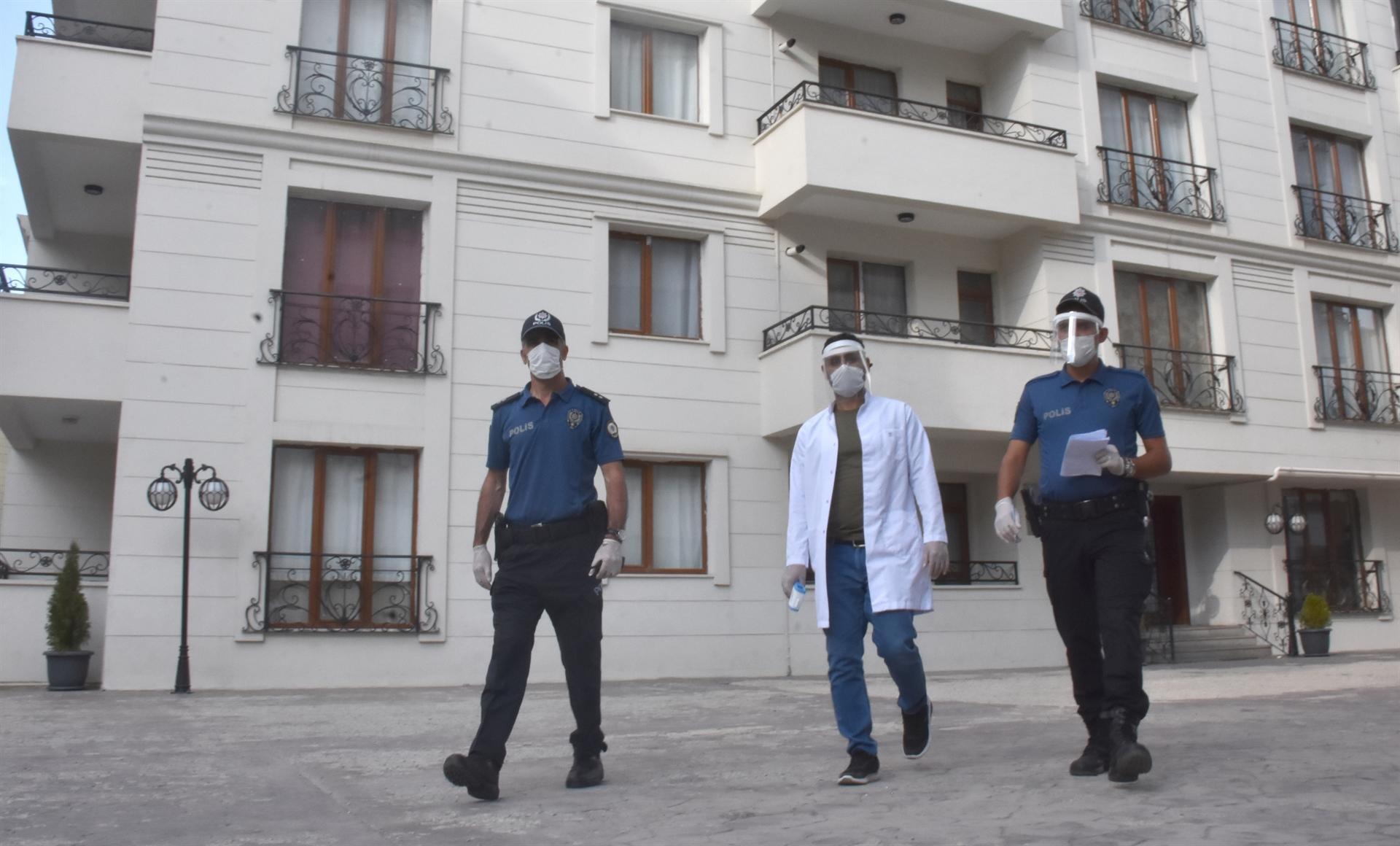
In the face of a surge in the number of COVID-19 cases, the Turkish government is going to tighten the screw on those who breach quarantine rules by evoking an article in the penal code.
State officials have been discussing how the outbreak will potentially unfold in Turkey in the coming months and what measures should be taken to curb a spike in infections.
As part of the precautions, an article in the penal code will be evoked and actively used against those who violate quarantine rules, daily Hürriyet reported.
Article 195 of the penal code stipulates that any person who fails to comply with quarantine measures shall be sentenced to a penalty of imprisonment for a term of two months to one year.
The implementation of such harsher punishments is believed to deter people from evading quarantine.
Turkey is confining those who break self-isolation and quarantine to dormitories.
Imposing curfews, however, is still not considered, according to the daily.
The officials reckon that if tighter inspections of anti-virus rules yield results, the number of COVID-19 cases will be brought down to where they were in April and May.
Rearranging working hours in the private sector — a measure currently in place for public sector employees in provinces such as Ankara and Istanbul — and business hours at shopping centers are also on the cards, the daily also reported.
The officials also observe that the spread of the virus in the capital Ankara has slowed and that the city’s residents are becoming more cautious about adhering to face mask and social distancing rules while public places and streets are now less crowded than before.
“The rate of increase in the number of coronavirus cases has slowed in the city,” confirmed Vasip Şahin, Ankara’s governor.
An inspection team of 7,500 personnel is checking if the anti-virus rules are properly followed, he said, adding that 570 filiation teams with 2,000 members are also out in the field in the city.
The filiation is a method of screening the chain of contact in the infectious disease.
Measures against false COVID-19 info
Meanwhile, the Interior Ministry on Sept. 24 issued a new notice bringing judicial measures for those providing false or missing information on their COVID-19 contacts.
According to the notice, if COVID-19 patients provide health authorities with false or missing information on whom they had physical contact with, they might receive up to two years of prison sentence or judicial fine.